SPONSORED BY:



HEDGE


SPONSORED BY:




THE YEAR’S MOST EXCITING HEDGE FUND LAUNCHES
The hedge fund industry has swelled to an imposing $4.88tn in 2024, yet this year’s launch landscape bears scant resemblance to its predecessor. Gone are the headline-grabbing multi-billion-dollar debuts that dominated 2024. A more nuanced ecosystem stands in its place: geographically dispersed, strategically diverse, and increasingly stratified by pedigree.
In Hedgeweek’s third ‘Ones to Watch’ emerging managers report, supported by Marex, we’ve identified distinctive new hedge fund ventures poised to make their mark in 2025 – revealing how the industry’s newest entrants are navigating an environment that rewards specialisation over scale.
Section one unveils a striking realignment in the global launch landscape. While North America retains its leadership position, our analysis reveals an unexpected redistribution of power across Europe, Asia-Pacific and most notably, the Middle East. These shifts suggest not merely a temporary fluctuation but potentially the early signals of a restructuring in the industry’s geographic hierarchy –with implications that extend far beyond mere launch statistics.
Our strategy analysis uncovers evolving investor appetites and emerging priorities. Though equity approaches maintain their frontrunner status, they face unprecedented competition from diversified and quantitative strategies. Global macro, multi-strategy and commodities approaches have carved out significant market share, reflecting deeper shifts in investor thinking and market conditions.
MANAS SINGH
This is all taking place against a backdrop of heightened investor scrutiny, with our survey revealing a slight decline in allocator openness to emerging managers compared to last year. The motivations driving those still engaging with new launches reflect calculated strategic objectives, like access to niche strategies, rather than generalised exposure – a fundamental shift in allocator thinking with profound implications for fundraising strategies.
Readers of Hedgeweek’s ‘Edge’ fund series will recognise this trend toward specialised strategies, as we continue to showcase innovative funds capturing allocator attention in today’s uncertain market environment.
In the report below, a particularly noteworthy trend is the evolution in gender diversity among founding teams. Our data shows a marked year-over-year transformation that challenges longstanding industry patterns, though substantial disparities persist. This acceleration may signal a genuine inflection point rather than incremental progress.
Meanwhile, the operational environment grows increasingly complex as institutional demands intensify, and fee structures continue their transformation. These developments create additional challenges for resource-constrained launches while reshaping the fundamental economics of emerging fund businesses.
The 20 hedge fund firms included in this section are the titular ‘Ones to Watch’. This is an editorial list that runs in no particular order and is not a ranking.
It was compiled by Hedgeweek based on interviews with established and emerging hedge fund managers and in-house research, taking into consideration multiple factors including founder pedigree, relevance of investment strategy, business innovations, and attractiveness to investors. To be considered for the list, a firm must have either started trading after 30 September 2024 or be scheduled to start trading before 1 January 2026.
The second part of the report presents findings from Hedgeweek’s Q2 2025 survey of more than 100 hedge fund managers and 50 allocators across the world.
Breakdown of respondents to Hedgeweek’s Q2 Hedge Fund Manager Survey by firm location, size and approach:
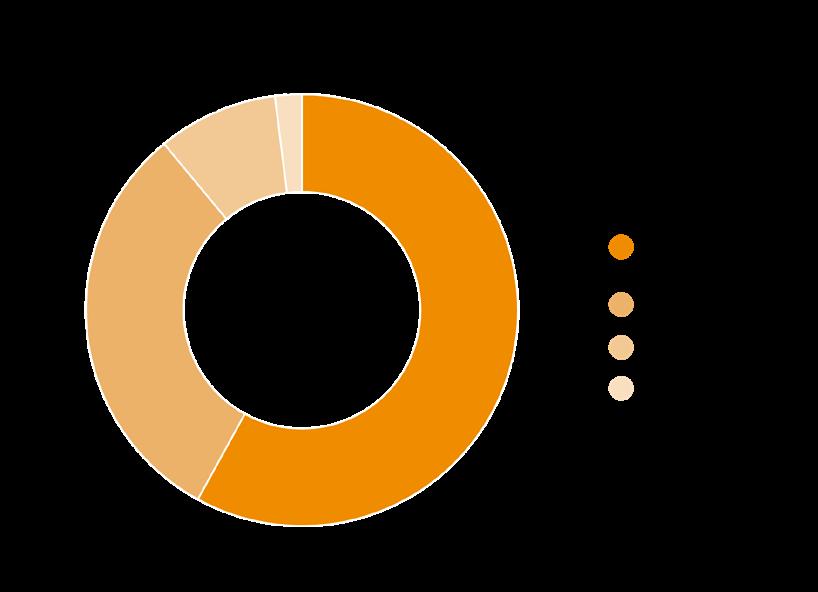
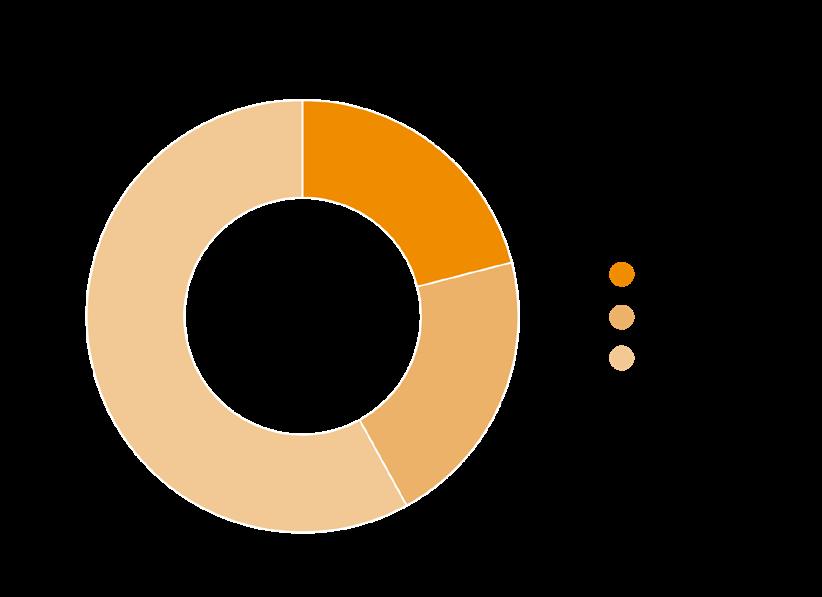

Breakdown of respondents to Hedgeweek’s Q2 Allocator Survey by firm location, size and approach:
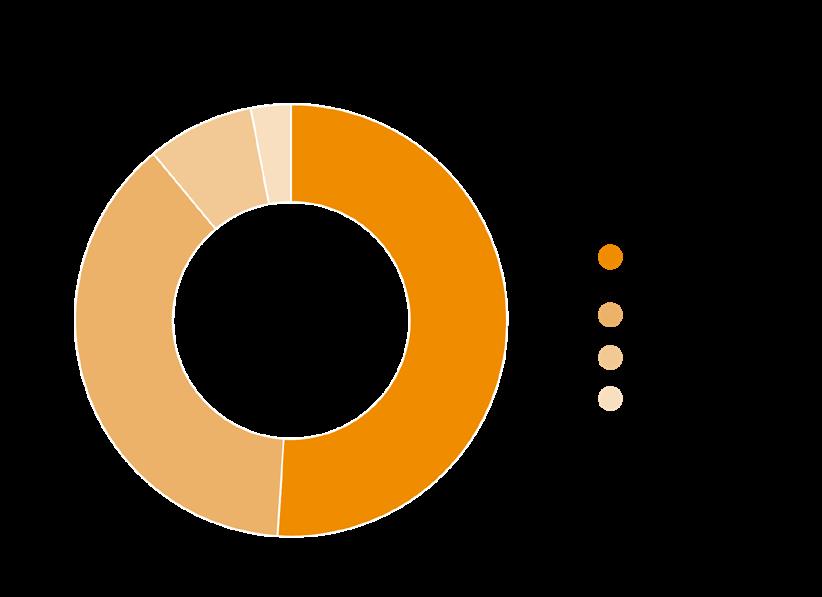

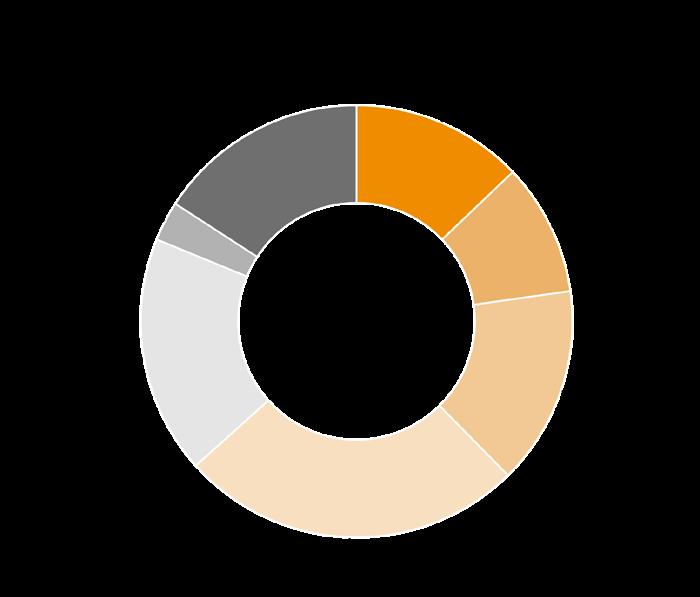

Equity-focused funds maintain their leading position in 2025 launches (35%), while quantitative approaches have gained significant traction (15%). Global macro, multi-strategy, and commodity funds each represent 10% of new ventures, reflecting a balanced diversification across major strategy categories. This distribution mirrors our allocator survey, which reveals investor preference for equity, macro, market neutral approaches, and multi-strategy funds. The alignment between launch activity and investor sentiment indicates managers are successfully adapting to evolving market conditions and allocator appetites for diversification beyond traditional equity exposure.
North America maintains its leadership position with 45% of new ventures, though this represents a slight decline from prior years. Europe follows at 25%, with Asia-Pacific regions maintaining solid representation at 20% and the Middle East emerging with 10% of new launches. This geographical evolution reflects both regulatory considerations and strategic positioning across multiple jurisdictions. Simultaneously, female-led ventures have quadrupled from 5% in 2024 to 20% in 2025, suggesting meaningful progress in addressing the industry’s historical gender imbalance. This dual diversification – both geographic and demographic – signals a hedge fund industry gradually evolving beyond its traditional roots toward a more globally representative future.
Capital raising is the number one challenge for three out of four funds according to our survey, but not all managers face equal struggles. Most pedigreed alumni from elite platforms like Millennium can command massive day-one assets (£1bn+) on reputation alone. Meanwhile, others face a stark choice: launch subscale with own money (under £50m) or surrender significant equity to seeders. This widening gap between the haves and have-nots is reshaping the emerging manager landscape, with seeder capital increasingly becoming the lifeline for nonpedigreed founders.
4
Investors maintain cautious approach to emerging managers
Despite challenging market conditions; investors remain selective but engaged with new hedge fund talent. Our survey reveals a slight majority (54%) are less open to emerging managers than a year ago, yet those still allocating are pursuing specific objectives. Top motivations are split equally between outperformance potential and access to niche strategies (33% each), with favourable terms also driving interest (22%). This nuanced approach reflects institutional investors’ dual mandate: seeking differentiated returns while maintaining disciplined risk management in an increasingly stratified launch environment.

Specialism: Equity long-short (Healthcare)
Headquarters: New York
Founder: Aaron Weiner
Pedigree: Coatue Management
Former Coatue Management partner Aaron Weiner is reportedly launching one of 2025’s most notable debuts with a substantial £3bn in seed capital, provided exclusively by Izzy Englander’s Millennium Management. The healthcare-focused long-short equity fund is set to begin trading this quarter with Weiner, 32, as the sole Portfolio Manager. Industry sources suggest he aims to build a team of more than 10 professionals by year-end. This substantial backing reflects Millennium’s strategic approach to external manager funding, having reportedly raised £10bn specifically for such initiatives. The move comes as specialised healthcare investment strategies continue to attract strong interest amidst pharmaceutical innovation and healthcare policy shifts.
Specialism: Event-driven/M&A
Headquarters: London
Founder: Frank Dejonckheere
Pedigree: Millennium
Andleye Capital, reportedly named after a Flemish poem of personal significance to its founder, implements a distinctive fundamental approach to transformational M&A and equity capital market transactions. The London-based firm employs a near market-neutral equity long-short methodology, enhanced by proprietary quantitative factor analysis. Industry sources indicate the firm is actively working to expand its assets under management with plans to eventually establish a presence across the Atlantic. The founder, bringing a boutique approach to event-driven investing in an increasingly algorithmic landscape.
Specialism: Fixed-income/Credit
Headquarters: London
Founder: Terrence Matthews
Pedigree: Centiva Capital & Millenium
Terrence Matthews, previously Head of European Credit at Centiva Capital, has reportedly secured approximately £200m in initial capital for his new London-based credit fund. Sources close to the matter suggest the backing comes from New Holland Capital through a separately managed account arrangement. Matthews is reportedly assembling a core team of three investment professionals who will focus on European fundamental relative value and macrocredit strategies. His extensive background includes credit portfolio management roles at Millennium and Arrowgrass Capital Partners, as well as proprietary credit trading at TD Securities. Athlone joins the growing cohort of experienced traders from top multi-strategy firms who are opting to establish independent ventures amidst the evolving European credit landscape.


Specialism: Multi-strategy
Headquarters: Abu Dhabi
Founders: Martin Rasmussen and Claus Rosenberg Gotthard
Pedigree: UBS (Rasmussen)
Former UBS investment banker Martin
Rasmussen and entrepreneur Claus Rosenberg Gotthard are reportedly set to launch Dovehouse Capital, a multi-strategy hedge fund based in Abu Dhabi. Industry sources suggest the fund will commence trading this quarter, with targets to reach £150m in assets under management by Q3. The investment approach reportedly spans diversified asset classes, including equities and commodities, with a particular focus on opportunities at the intersection of Western and Middle Eastern markets. The venture underscores Abu Dhabi’s rising prominence as a financial hub for alternative investments, as the emirate successfully attracts hedge fund talent and capital from traditional centres such as London and New York through favourable regulatory conditions and strategic investment initiatives.
Specialism: Commodities (Agriculture)
Headquarters: Melbourne
Founder: Adam Davis
Pedigree: Merricks Capital
Farrer Capital Management has reportedly completed a £500m capital raise and subsequently closed to new investors, establishing itself as one of the few specialist agriculture-focused investment funds in the Asia-Pacific region. The Australian commodity hedge fund announced it had “successfully achieved its stated targeted capacity” and would no longer accept additional investment capital. Market observers note that the firm’s focus on agricultural commodities comes amid growing institutional interest in specialised commodity strategies, particularly those addressing food security concerns, sustainable agriculture transitions, and opportunities presented by increased market volatility and ongoing supply chain recalibrations. The successful fundraise highlights the growing prominence of Australia as a base for commodity-focused alternative investment strategies.
Specialism: Global macro
Headquarters: US [City Unspecified]
Founder: Paul Podolsky
Pedigree: Bridgewater Associates
Paul Podolsky, a seasoned hedge fund executive with more than 15 years at Bridgewater Associates, launched Kate Capital late last year with approximately £200m in initial capital. Sources familiar with the matter suggest that, unlike Bridgewater’s systematic approach, Kate Capital will operate as a discretionary global macro fund, managing 50 to 60 positions simultaneously across various asset classes and geographies. The founding team reportedly includes four key members, among them Tom Bachner, former president of distressed debt specialist Mudrick Capital and longtime fundraiser at Bridgewater. Industry observers note that Podolsky’s extensive experience in navigating global markets through various economic cycles will be central to the firm’s strategy, particularly as monetary policy divergence and geopolitical tensions create macro trading opportunities.
Specialism: Systematic
Headquarters: New York
Founder: Geoffrey Lauprete
Pedigree: WorldQuant
Geoffrey Lauprete, former CIO at WorldQuant, has reportedly secured an impressive £1bn from Paloma Partners for his new venture, Libero Capital. Industry sources suggest Lauprete is currently engaged in discussions with potential investors for additional anchor capital to further bolster the firm’s launch. According to Hedge Fund Alert, he has assembled a team that includes former WorldQuant colleague Phil Weaver and Adam Kravetz, the ex-COO of recently shuttered Seven Eight Capital. The firm’s specific investment strategy remains closely guarded, though sources familiar with the matter suggest it will leverage Lauprete’s extensive experience in quantitative methodologies.

Specialism: Equity long-short
Headquarters: Hong Kong
Founders: Yoshi Ohira and Xavier Fanjaud
Pedigree: Luxence Capital
Yoshi Ohira, co-CIO of Luxence Capital, and former COO Xavier Fanjaud are reportedly collaborating to launch a Japan-focused hedge fund based in Hong Kong. Sources close to the matter indicate the fund is set to debut in Q4 and will employ an equity longshort strategy specifically targeting Japanese markets. The venture reportedly leverages the duo’s extensive experience in Asian financial markets and comes amid renewed investor interest in Japan following significant structural reforms and corporate governance improvements under recent administrations. Market observers suggest the fund aims to capitalise on the ongoing revitalisation of Japan’s equity markets, which continues to offer distinctive alpha opportunities as the country navigates economic policy shifts and corporate restructuring initiatives. The Hong Kong base potentially offers strategic advantages for accessing both Japanese markets and global capital.
Specialism: Multi-strategy
Headquarters: Dubai
Founding team: Ahmed Omar and Britney Lam (recently departed)
Pedigree: Ovata Capital
Dubai-based Magellan Capital reportedly launched a £700m multi-strategy hedge fund, potentially marking one of the largest fund debuts ever in the United Arab Emirates. Founded by Hassan El Ali, who reportedly provided seed capital from wealth generated through the sale of Zakher Marine International to a subsidiary of Abu Dhabi National Oil, the firm is now led by CEO Ahmed Omar. The fund has assembled a team of over 15 investment professionals focusing primarily on equity and credit strategies. Britney Lam, initially hired as the founding member and the head of long-short equities from Ovata Capital, has reportedly departed the firm just months before its anticipated launch. According to industry tracker Preqin, only 5% of hedge funds globally have launched with £500m or more last year, placing Magellan in an elite category. The launch comes as Dubai continues its strategic push to establish itself as a premier financial hub capable of attracting both institutional capital and investment talent.
Specialism: Quantitative/Multi-strategy
Headquarters: London
Founder: Marton Peter Price
Pedigree: Apollo Global Management
MPP&E Capital, a newly established quantitative hedge fund based in London, is reportedly preparing a phased launch this year with individual managed account (SMA) allocations, followed by an institutional commingled fund structure. Industry sources suggest the multi-strategy operation will focus on systematic approaches across US equities, commodities, macro futures, and volatility strategies. The firm reportedly employs proprietary quantitative methodologies that combine machine learning techniques with traditional factor models. Market observers note that the launch reflects continuing institutional investor interest in sophisticated quantitative strategies capable of navigating increasingly complex market conditions through algorithmic and systematic approaches, particularly as correlations between traditional asset classes continue to evolve in the current monetary policy environment.
Specialism: Equity hedge (Emerging Markets)
Headquarters: London
Founder: Robert Bonte-Friedheim
Pedigree: Millennium
Former Millennium Portfolio Manager Robert Bonte-Friedheim is reportedly launching a London-headquartered equity hedge fund with approximately £200m. According to individuals familiar with the matter, Scarlet Macaw Capital will focus on emerging markets opportunities, with particular emphasis on Turkey and South Africa. Bonte-Friedheim’s professional background reportedly includes portfolio management at Michael Platt’s BlueCrest Capital Management between 2016 and 2018. During his tenures at both Millennium and BlueCrest, he reportedly managed a liquid market-neutral strategy investing across Turkey, South Africa, Central and Eastern Europe, the Middle East, and North Africa, providing him with specialised expertise in these often volatile markets. The fund launch comes amid renewed interest in emerging market opportunities as differential inflation and interest rate environments create potential dislocations for specialist managers to exploit.
Specialism: Quantitative/Factor investing
Headquarters: New York
Founders: Carter Davis, Francesco Fabozzi, and Amit Gandhi
Pedigree: Academic research
Three distinguished academic researchers are reportedly establishing Sectional Capital, a hedge fund operation employing a novel approach to factor investing that represents a potential paradigm shift in quantitative strategies. Sources familiar with the venture indicate their proprietary methodology utilises demand for stocks, rather than traditional systemic risks, to potentially outperform conventional factor-based approaches. According to their research recently published in The Journal of Portfolio Management, this methodology produced paper returns with Sharpe ratios reportedly more than twice as high as traditional factor-based investment models, generating significantly improved alpha metrics. While the fund’s final structure is reportedly still evolving, industry sources suggest the founders are in advanced discussions with several prominent institutional investors and service providers. Market observers note that this launch represents a noteworthy example of the increasingly significant intersection between cutting-edge academic financial research and practical investment strategy implementation, a trend that continues to reshape quantitative investment approaches across the industry.
Specialism: Equity long-short (Asia)
Headquarters: Hong Kong
Founder: Jun Y. Oh
Pedigree: Wellington Management
Jun Y. Oh, a veteran of Wellington Management, launched Griet Capital in the first quarter of 2025, focusing on Asian markets excluding India. Industry sources indicate the fund will employ a long-biased strategy (70-100% net exposure) targeting outof-favour high-quality businesses poised for transformational change. The high-conviction portfolio reportedly aims to include 15-25 holdings, primarily in the SMID cap space across Japan, Korea, Taiwan, and Greater China, with secondary exposure to Southeast Asian markets. Oh, who made partner at Wellington in 2009, has reportedly committed to seeding the fund with his own capital and will serve as the sole Portfolio Manager. His experience across Asian markets includes stints in Boston, Tokyo, and Hong Kong offices at Wellington, as well as earlier roles at Morgan Stanley, Peregrine Securities, and JP Morgan. Market observers note that the strategy’s focus on misperception and future change in quality businesses potentially offers a differentiated approach in the increasingly sophisticated Asian equity markets.

Specialism: Equity long-short
Headquarters: Sydney
Founders: Jun Bei Liu and Jason Todd
Pedigree: Tribeca Investment Partners
Ten Cap, an Australian boutique investment firm founded by lead Portfolio Manager Jun Bei Liu and CEO Jason Todd in 2025, reportedly manages the Alpha Plus fund — described by market observers as Australia’s largest founder-owned and led 150:50 fundamental active extension strategy. With reportedly more than £1.5bn in funds under management, it reportedly provides core exposure to the ASX200 Index through what the firm describes as a style-agnostic strategy, enhanced with a proprietary longshort allocation and sophisticated hedging methodology. According to marketing materials, Ten Cap emphasises both wealth growth and community development alongside investment returns, reflecting the growing importance of purpose-driven investment management in attracting both talent and capital. The firm’s rapid ascent highlights the continuing maturation of Australia’s alternative investment ecosystem.
Specialism: Equity long-short
Headquarters: Dallas
Founder: Evan Troop
Pedigree: JP Morgan
JP Morgan Managing Director Evan Troop has launched an equity long-short hedge fund after 12 years at the banking institution. Sources indicate he recently established Troop Capital Management in partnership with MSH Capital Advisors. Market observers suggest his extensive experience at JP Morgan provides a robust foundation for this new venture, particularly in navigating complex equity market dynamics. The launch reflects the continuing migration of talent from traditional financial institutions to the alternative investment sector, as experienced portfolio managers seek greater autonomy and potentially more favourable economics. While capital raising targets remain undisclosed, industry sources speculate the fund will likely focus on sectors where Troop developed particular expertise during his banking career.
Specialism: Global Macro
Headquarters: Connecticut
Founder: Abbas Zuaiter
Pedigree: Soros Fund Management
Abbas Zuaiter, former COO at Soros Fund Management, is reportedly launching 33 Capital Management, a macro hedge fund, in December. Based in Connecticut, the fund will reportedly maintain exposure across multiple asset classes including equities, commodities, currencies, and sovereign rates. Industry sources suggest that the timing appears opportune, as geopolitical uncertainties and monetary policy divergences across major economies create potentially significant opportunities for sophisticated macro strategies. While specific capital-raising targets remain undisclosed, individuals familiar with the matter suggest the fund has already received substantial interest from institutional investors familiar with Zuaiter’s track record and investment approach.
Specialism: Long-Short Credit
Headquarters: New York
Founder: Paul Goldschmid
Pedigree: King Street
Former King Street Executive Paul Goldschmid is reportedly launching Harvey Capital Partners, a deeply fundamental longshort credit firm focused on opportunistic investments across global asset classes. The firm will target idiosyncratic, often processdriven situations requiring extensive analytical work – reportedly an investment approach he has cultivated throughout his two-decade career. Sources familiar with the matter indicate Goldschmid has partnered with David Cohen, CFA, who will serve as President and oversee non-investment operations. Market observers note that the launch reflects a continuing trend of senior investment professionals departing established firms to pursue more focused investment mandates, particularly in specialised credit strategies where deep analytical capabilities can potentially create sustainable competitive advantages.

Specialism: Commodities (Multi-strategy)
Headquarters: Not specified
Founder: Aline Carnizelo
Pedigree: 18 years cross-asset investment experience
Frontier Commodities, led by Managing Partner Aline Carnizelo, is reportedly opening its established commodities strategy to external investors after operating as an internal closed strategy. Sources familiar with the firm indicate the strategy employs a distinctive “quantamental” approach across metals, energy, agricultural, and environmental commodities with a maximum gross exposure of 200%. The investment team, which includes Portfolio Manager Steffen Sabas who brings over 15 years of commodities trading experience, reportedly combines fundamental analysis with AI-driven analytics supported by a proprietary data system tracking more than 4,000 data series daily. Market observers note the strategy’s focus on environmental commodities, including carbon credits, potentially positions it to capitalise on accelerating decarbonisation trends. With approximately $50m in fund assets and $250m strategy assets under management, industry sources suggest the fully-audited track record has generated significant interest among institutional investors seeking diversified commodities exposure with sophisticated risk management techniques.
Specialism: Dislocation investing (Cross-capital structure)
Headquarters: New York
Founder: Alexandra Engler
Pedigree: Diameter Capital Partners, King Street Capital
Alexandra Engler, a veteran of several distinguished asset managers including Diameter Capital Partners and King Street Capital, is reportedly preparing to launch Arène Capital in September 2025. Industry sources suggest the firm will employ a fundamental, opportunistic approach targeting idiosyncratic and secular dislocations across both credit and equity markets, with a primary focus on the US and Europe. The investment strategy reportedly aims to identify winners and losers from major industry upheavals by looking beyond short-term noise to understand long-term disruptive trends with a typical investment horizon of 1-3 years. With target gross exposure of 120-160% and net exposure ranging from 0-60%, market observers note the strategy potentially offers flexibility to navigate complex market environments. The founding team reportedly includes Ricky Balaban as COO/CFO/CCO, who previously helped launch Sahana Capital, a spin-off from 3G Capital. Securities filings indicate the firm will be SEC-registered and offer separately managed accounts alongside its commingled investment vehicles.
Specialism: Global Macro
Headquarters: Copenhagen
Founder: Andreas Steno Larsen in partnership with Asgard Asset Management Pedigree: Nordea, Steno Research
Former Nordea strategist and Steno Research founder Andreas Steno Larsen is reportedly set to launch the Asgard-Steno Global Macro Fund in partnership with Danish hedge fund manager Asgard Asset Management.
According to a joint press release, the fund was scheduled to debut in December 2024 and will combine Steno Research’s macroeconomic insights with Asgard’s expertise in risk premia strategies. Industry observers suggest this collaboration brings together specialised research capabilities and established fund management infrastructure, potentially offering a distinctive approach to global macro investing. While initial capital figures remain undisclosed, sources familiar with Nordic institutional investors suggest the fund has generated considerable interest among regional allocators familiar with both Larsen’s macroeconomic research and Asgard’s investment platform.

How would you characterise the current landscape for emerging hedge fund managers?
We’re in a unique moment. The recent market volatility will likely persist for months, which changes the picture somewhat. Coming into the year, there was significant appetite for emerging managers, partly because enthusiasm for large multi-strategy platforms had faded due to concerns about overcapitalisation. This led allocators to seek alpha from smaller, newer managers. However, the heightened volatility of recent weeks will likely temper some interest — not because sentiment towards emerging managers has shifted, but because institutional investors are contending with drawdowns in their broader portfolios and may be less inclined to take additional risks.
Our research indicates investors are seeking niche strategies from emerging managers. Does this align with what you’re hearing?
That’s one of the top trends we’re seeing. With the industry at approximately $4.5tn, we’re not seeing substantial new capital pools. Instead, we’re witnessing mature portfolios where allocations are more about tactical adjustments rather than deploying fresh capital. This environment naturally favours niche strategies that offer something distinctive.
In terms of strategy preference, we’re seeing more market-neutral and multistrategy approaches alongside increased interest in commodities. What trends are you observing?
I would agree. We’re certainly observing both of these trends in the market. Given our expertise in commodities, we’ve seen a notable increase in interest from allocators. On the market-neutral front, demand has clearly picked up as a result of the recent surge in volatility. Much of this is being driven by a desire for strategies with lower net market exposure, looking for unique alpha streams. While there’s growing appetite for marketneutral and low-beta strategies, there’s also sustained and meaningful interest in long-only allocations, leading to a bit of a barbell effect: ultimately, the focus is shifting toward paying for true alpha, rather than simply gaining market exposure.
What helps emerging managers overcome the persistent capital-raising challenge?
Several factors are crucial. First, have a clear, concise story explaining where you fit in an investor’s portfolio and articulating your alpha contribution and key differentiators. Second, demonstrate appropriate gravitas and institutional credibility. Third, present materials that efficiently communicate your strategy, terms, and differentiators. Finally, explain any evolution from your previous approach convincingly — particularly if you’re shifting from a long-biased to a market-neutral strategy and vice versa. (The ability to clearly answer “why can you hedge effectively when others have struggled?” is often decisive.)

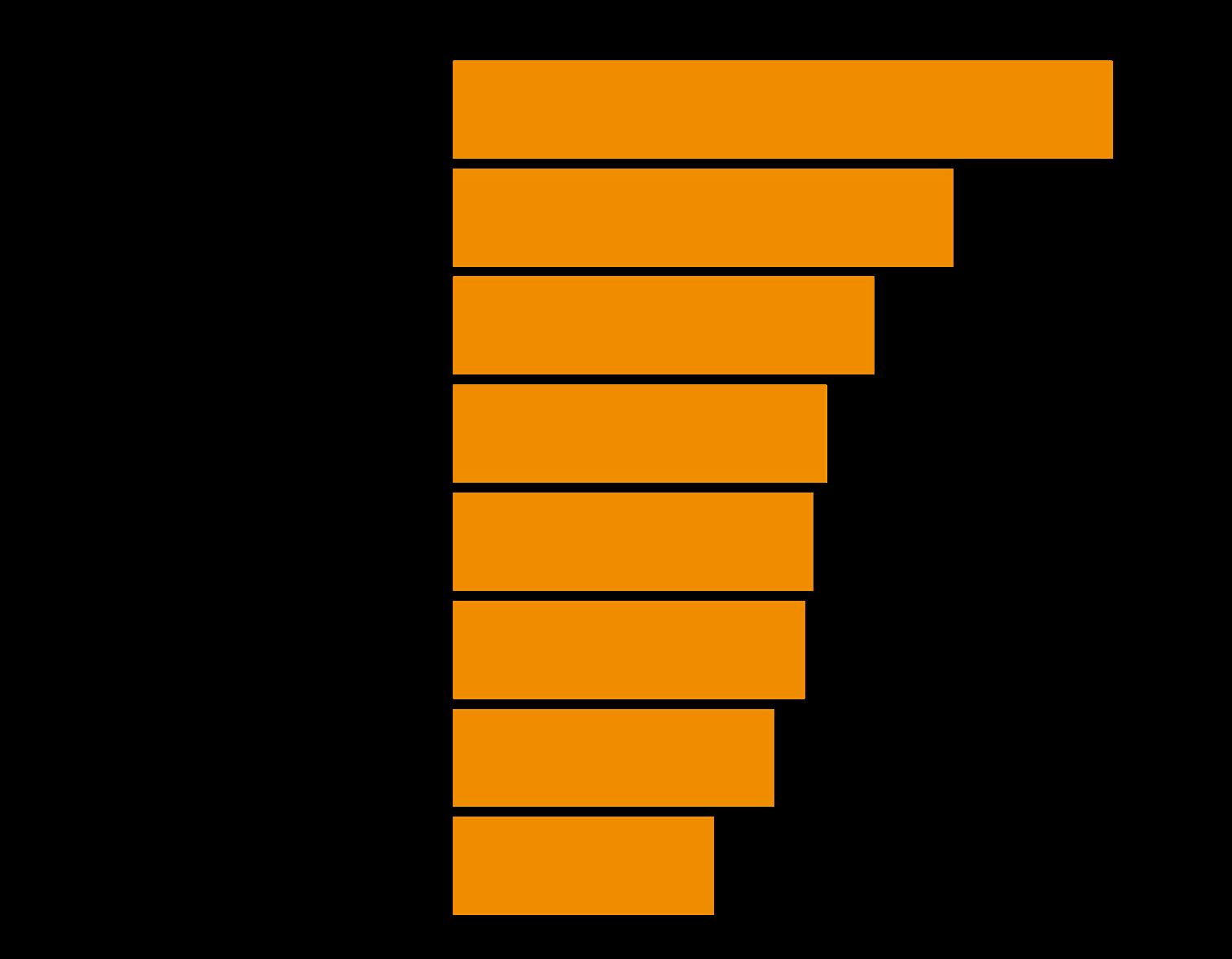
The emerging hedge fund landscape in 2025 presents a stark dichotomy of opportunity and constraint, with fortunes increasingly determined by pedigree, strategy specialisation, and geography. Our annual “Ones to Watch” list above reveals an industry experiencing profound structural shifts, with serious implications for both allocators and aspiring managers.
“For emerging managers today, the path forward has never been more bifurcated,” explains one Switzerland-based manager who spoke to Hedgeweek on condition of anonymity. “Those with Citadel or Millennium backgrounds can essentially write their own tickets. Everyone else must either launch with modest family office capital or surrender significant economics to seeders.”
This assessment captures the increasingly stratified nature of the hedge fund launch environment. Pedigree has emerged as the defining factor in fundraising success, exemplified by Atlantic Wolf Capital’s £3bn debut – a testament to how prestigious platform backgrounds can unlock institutional capital despite broader caution towards first-time funds.
“The launch environment today demands scale from inception,” says Todorovich. “We’ve entered an era where being small at launch significantly reduces your probability of longterm success.”
The post-pandemic investor mindset bears much responsibility for this dynamic. “There’s been a fundamental shift in risk appetite since Covid,” Todorovich notes. “Allocators have retreated to the perceived safety of established brands and recognised names. Without elite platform credentials, the burden of proof has become extraordinarily high.”
Between elite platform spinouts and subscale family-and-friends funds lies a middle tier of managers with strong institutional backgrounds capable of raising £100-500m through traditional channels without equity dilution. This cohort faces mounting pressure from both directions: intensifying competition from prestigious alumni for institutional allocations, and increasingly aggressive terms from seeded managers with substantial day-one backing.
Source: Hedgeweek Hedge Fund Manager Survey Q2 2025
For the majority of new managers, however, capital raising represents an increasingly formidable hurdle. Nearly three-quarters of young funds in our survey identified raising sufficient day-one assets as their primary challenge. Serge Todorovich, Principal and General Counsel at Shenkman Capital Management, is unequivocal about this reality.
This creates what Adam Singleton, CIO of External Alpha at Man Group, describes as a counterintuitive market dynamic that challenges conventional wisdom about launch environments.
“The quality of emerging managers isn’t necessarily correlated with volume,” observes Singleton. “Each year produces a handful of exceptional talents regardless of market conditions. Paradoxically, high-volume periods often generate disproportionate numbers of mediocre launches rather than standouts.”
Singleton argues that challenging environments can actually reveal superior managers. “The genuinely exceptional teams demonstrate rational confidence rather than exuberance,” he notes. “They possess clear self-awareness about their edge and its limitations; qualities that transcend particular market regimes.”
Beyond capital raising hurdles, our “Ones to Watch” list reveals substantial evolution in strategic focus among emerging managers. While equity strategies maintain their leading position at 35% of new launches, quantitative approaches have emerged as a significant trend at 15% of the cohort. Global macro, multi-strategy, and commodities each maintain consistent representation at 10% of new ventures, reflecting a balanced diversification across major strategy categories.
This strategic evolution closely mirrors investor preferences captured in our allocator survey. Whilst over one in five investors into hedge funds ranked market-neutral strategies as their top preference for the year ahead, multi-strategy funds achieved the highest weighted average favourability score among
allocators at 3.63. On our 5-point scale (where 1 represents highly unfavourable, 3 is neutral, and 5 is highly favourable), market-neutral strategies received a solid score of 3.54 — indicating a moderately positive sentiment that leans towards “favourable” but hasn’t reached overwhelming enthusiasm. The slight edge for multi-strategy funds (3.63 vs 3.54) suggests allocators value their diversified approach and flexibility across market conditions. Global macro and credit strategies also ranked high in allocator preference. Digital asset managers, on the other hand, continue to be perceived as risky investments, with more than a third of allocators viewing them as “highly unfavourable” for 2025-26, resulting in their significantly lower weighted average score (see figure).
Frederic Guibaud, Co-Founder & Director at AlphaBee, a fund of hedge funds, recalls his firm’s contrarian move into commodities well ahead of the current trend.
“We identified compelling commodity strategies in 2018 when the sector was essentially dormant,” says Guibaud. “The space had experienced such prolonged inactivity that it had fallen completely off most allocators’ radar screens.”
Guibaud attributes the sector’s revival to the fracturing of globalisation followed by a series of systemic shocks. “The initial deglobalisation impulses from Brexit and the Trump administration created the foundation,” he notes. “Then successive crises – from pandemic disruptions to geopolitical conflicts
2.1b What is your primary motivation for considering allocations to emerging managers?

Source: Hedgeweek
Each year produces a handful of exceptional talents regardless of market conditions. Paradoxically, high-volume periods often generate disproportionate numbers of mediocre launches rather than standouts. “
Adam Singleton CIO of External Alpha at Man Group
– delivered substantial volatility, creating precisely the dispersion environment where specialist managers thrive.”
This elevated volatility across markets has generated what Singleton characterises as a renaissance in alpha generation opportunities following the barren low-volatility era of the late 2010s.
“Today’s environment represents a fundamental improvement in alpha-generating conditions,” Singleton argues. “The combination of meaningful volatility and positive real rates creates abundant dislocations that skilled managers can exploit — a stark contrast to the opportunity desert of 2017-2019.”
The most striking finding in our 2025 analysis is the dramatic realignment in geographic distribution of new launches. North America maintains its leadership position with 45% of new ventures, though this represents a notable decline from prior years. Europe follows at 25%, with Asia-Pacific regions maintaining solid representation at 20%. The Middle East has emerged as a significant player with 10% of new launches, reflecting the region’s growing significance in alternative investments.
This geographic evolution reflects both regulatory considerations and strategic positioning, with managers increasingly establishing presence in regions offering specialised expertise or favourable operational
environments. New York remains the single most common location (25% of funds), followed by London (20%), highlighting the continued dominance of traditional financial centres despite broader geographic diversification.
Todorovich acknowledges the potential regulatory advantages of non-traditional launch jurisdictions but cautions about investor conservatism around fund domicile.
“The gravitational pull of US institutional capital remains the industry’s primary constraint,” Todorovich explains. “We regularly encounter sophisticated investors who insist on Cayman structures despite the obvious regulatory legitimacy of EU jurisdictions like Ireland. These preferences aren’t rational – they’re institutional muscle memory and risk aversion manifested in domicile selection.”
This tension between regulatory innovation and investor convention creates significant strategic complexity for managers exploring nontraditional launch locations. While jurisdictions like Dubai, Singapore, and Australia offer increasingly sophisticated regulatory frameworks with potential cost advantages, managers must carefully balance these benefits against the entrenched preferences of the dominant US institutional investor base.
A notable trend in our 2025 analysis is the meaningful increase in female-led ventures, which now represent 20% of new launches — a
fourfold increase from just 5% in 2024. This progress suggests the industry may be slowly addressing its historical gender imbalance, though significant disparities remain.
The growth in women-led funds spans multiple strategies and geographies, with notable representation in equity, commodities, and credit approaches. While this trend represents encouraging progress, the industry continues to face meaningful challenges in creating a more balanced gender representation across senior investment roles.
Despite headwinds, our survey reveals persistent allocator interest in emerging managers, albeit with heightened selectivity. While a slight majority (54%) express reduced openness to emerging managers compared to last year, those still allocating cite specific strategic objectives: outperformance potential (33%), access to niche strategies (33%), and more favourable terms/alignment (22%).
Singleton articulates an increasingly sophisticated approach to emerging manager selection that prioritises specialisation over growth potential.
“We’ve developed a pronounced preference for genuine niche expertise,” says Singleton. “Over recent months, we’ve allocated to several highly specialised regional strategies where localised knowledge creates a demonstrable advantage against global generalists.”
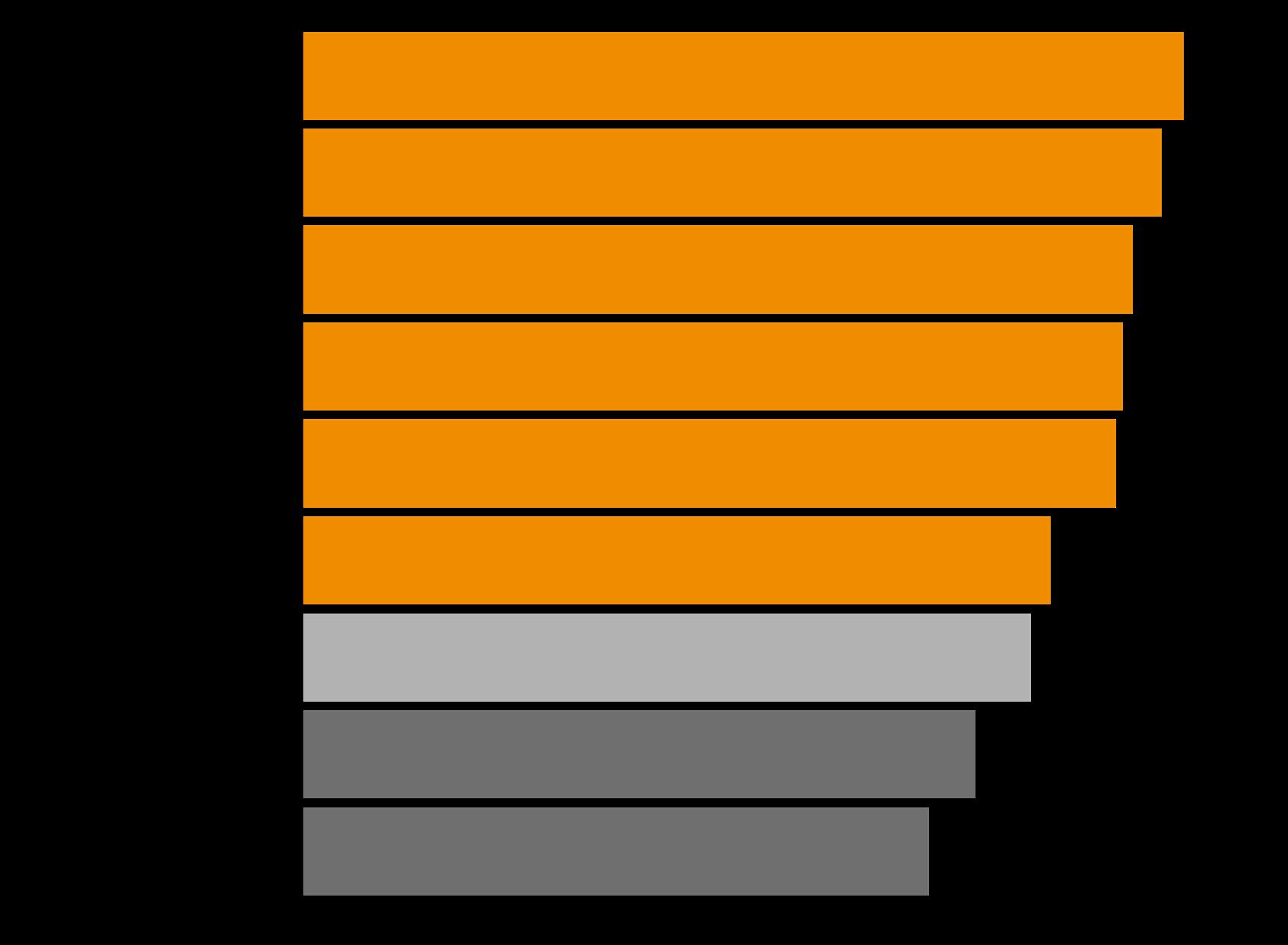
Fig. 2.3a Are you more open to the idea of investing in emerging hedge fund managers today than you were 12 months ago?

Source: Hedgeweek Allocator Survey Q2 2025
This emphasis on specialisation resonates throughout our allocator interviews, reflecting a fundamental shift in emerging manager evaluation criteria. The multi-billion-dollar aspiration once considered essential for institutional credibility has given way to a more nuanced appreciation of focused expertise.
“The most compelling emerging managers demonstrate acute self-awareness regarding their opportunity set,” Singleton argues. “They understand their specific edge, recognise its inherent capacity constraints, and commit to optimising performance rather than maximising assets. This capacity discipline has become a primary selection criterion rather than a secondary consideration.”
Beyond capital raising and strategy execution, emerging managers face intensifying pressure to deliver bespoke investment solutions. Todorovich identifies this trend as perhaps the most underappreciated structural challenge in today’s launch environment.
“The era of the straightforward flagship fund has effectively ended,” Todorovich observes. “A decade ago, launching with a standard masterfeeder structure and growing organically was the established pathway. Today’s institutional investors expect customisation from inception.”
This evolution has fundamentally altered the traditional seeding relationship. What once represented a relatively standardised
transaction has transformed into a complex negotiation over structure, terms and implementation.
“The traditional seeding model has been completely reimagined,” explains Todorovich. “Previously, securing a £100-200m anchor investment into your flagship vehicle was the gold standard. Today’s anchor investors typically demand segregated vehicles with bespoke terms, creating immediate operational complexity.”
These customisation demands extend well beyond investment parameters to encompass sophisticated data and reporting capabilities requiring substantial technology investments.
“The data infrastructure expectations have become extraordinary,” Todorovich notes. “A single institutional mandate might require £100,000 in annual MSCI subscriptions simply to provide carbon emissions metrics across your portfolio. The operational burden has become as significant as the investment challenge.”
For resource-constrained emerging managers, this creates an impossible dilemma: absorb these costs and damage your economics, or pass them through as fund expenses and face criticism for elevated expense ratios.
“Emerging managers face a no-win scenario regarding infrastructure costs,” Todorovich argues. “If they absorb these expenses, their business becomes potentially unviable. If they pass them through, allocators question
their operational efficiency. The customisation imperative has fundamentally altered launch economics.”
The once-standard “2 and 20” fee model continues its structural decline, particularly for non-elite managers seeking institutional capital. Todorovich characterises this compression as both pervasive and accelerating.
“The traditional fee paradigm has fundamentally collapsed,” Todorovich states. “The ‘2 and 20’ structure now exists almost exclusively for the most pedigreed launches or capacity-constrained specialists with demonstrable alpha. For most managers, particularly in scalable strategies, the fee discussion begins well below historical norms.”
The erosion extends beyond performance fees to management economics, with particular pressure in strategies perceived as more commoditised.
“We’re witnessing management fees consolidating around 125 basis points for many strategies,” notes Todorovich. “In private credit specifically, some managers have shifted to management-fee-only models with no performance component, while others maintain performance fees at 10 to 15% rather than the traditional 20%.”
This compression squeezes emerging managers from multiple directions simultaneously. Their revenue potential diminishes precisely as operational complexity and infrastructure requirements escalate, creating fundamental questions about business viability for subscale launches.
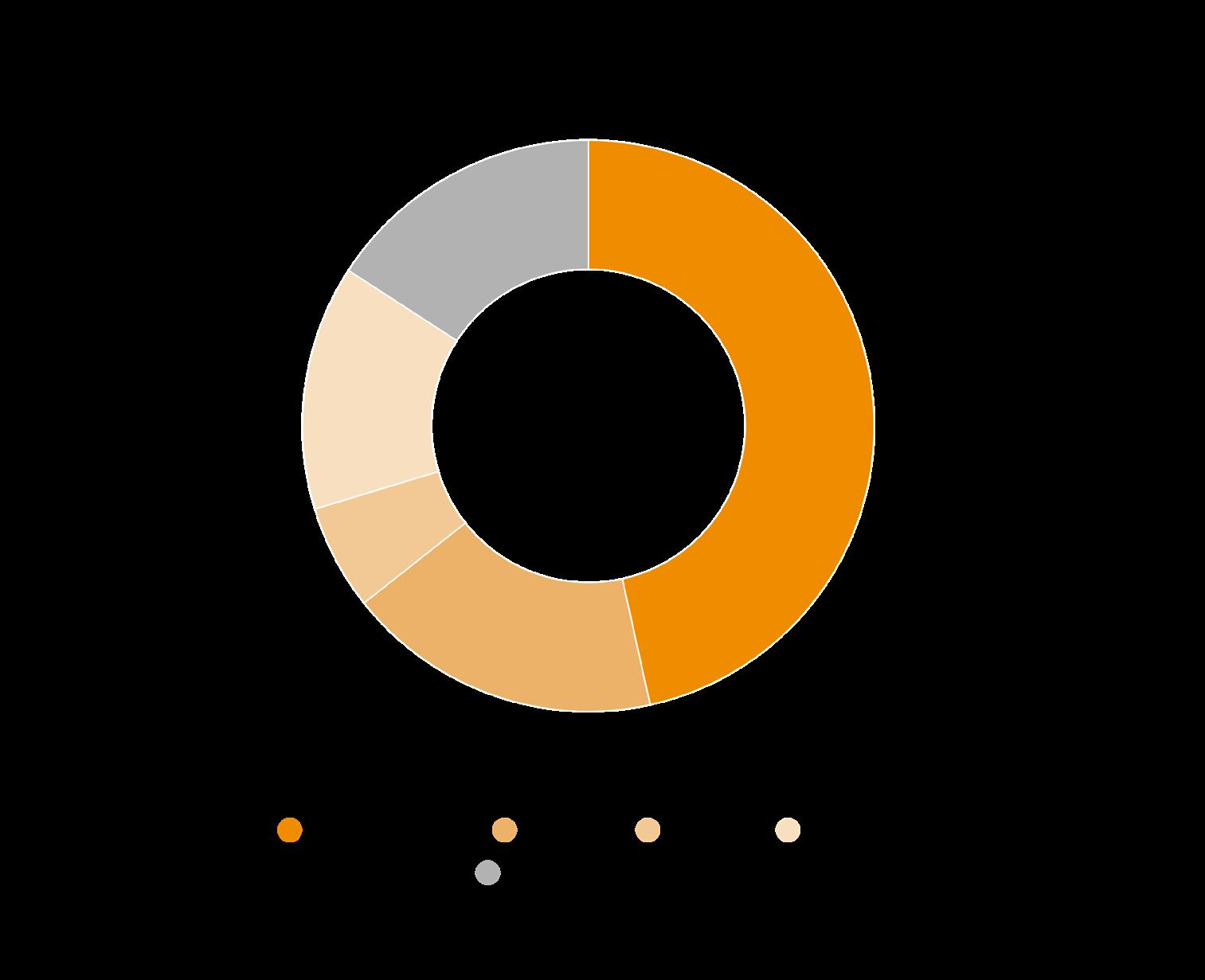
The hedge fund launch environment in 2025 presents a paradoxical landscape: greater opportunity for alpha generation amid market volatility, but heightened barriers to entry for all but the most pedigreed managers. Several key trends emerge from our analysis:
The pedigree premium continues to grow: The gap between platform alumni and other emerging managers is widening, with institutional investors backing 20% of new funds and multimanager platforms supporting another 10%, underscoring the advantage of elite backgrounds in capital raising.
Strategic diversification accelerates: While equity strategies remain predominant at 35%, quantitative approaches have gained significant traction at 15%, with global macro, multi-strategy, and commodity strategies each maintaining consistent representation at 10%.
Geographic fragmentation intensifies: North America maintains leadership with 45% of launches, but Europe (25%), Asia-Pacific (20%), and
Middle East (10%) regions all show meaningful representation, reflecting both regulatory considerations and strategic positioning.
Gender diversity shows progress: Female-led ventures have quadrupled from 5% in 2024 to 20% in 2025, suggesting meaningful, if still insufficient, progress in addressing the industry’s historical gender imbalance.
Customisation demands increase complexity: Institutional investors increasingly expect bespoke solutions, creating operational challenges that disproportionately impact emerging managers without substantial infrastructure.
Fee compression persists: The erosion of the traditional “2 and 20” model continues, particularly for nonelite managers, further pressuring business models already strained by rising operational costs.
For allocators, these trends present both challenges and opportunities. The increasing stratification of the emerging
manager landscape requires more nuanced due diligence, with greater emphasis on identifying genuine alpha generators among the growing cohort of seeded and platform-backed managers.
For aspiring fund managers, the message is clear: pedigree, specialisation, and operational excellence are now prerequisites rather than differentiators. Without a prestigious platform background, successful launches increasingly require either a highly differentiated strategy with demonstrable edge or willingness to surrender substantial economics to seed investors.
As Singleton observes: “You get a few good ones every year.” In 2025’s increasingly complex and competitive environment, identifying those few standouts — whether they come from prestigious platforms or represent truly differentiated specialists — remains the fundamental challenge for allocators and the existential hurdle for emerging managers themselves.

CONTRIBUTORS:
Manas Pratap Singh Head of Hedge Fund Research manas.singh@globalfundmedia.com
Johnathan Glenn Head of Design FOR SPONSORSHIP & COMMERCIAL ENQUIRIES: Please contact sales@globalfundmedia.com